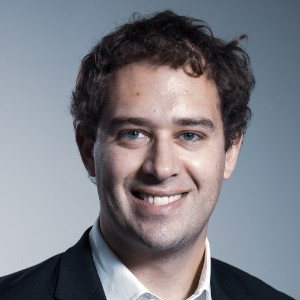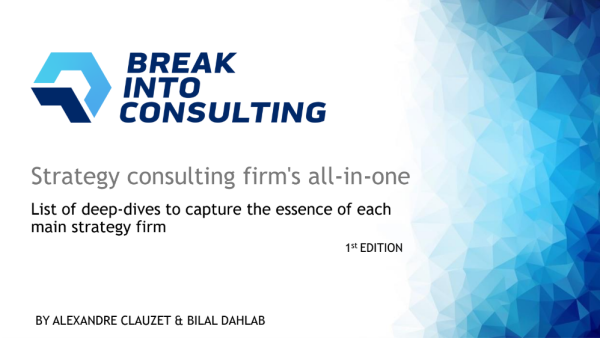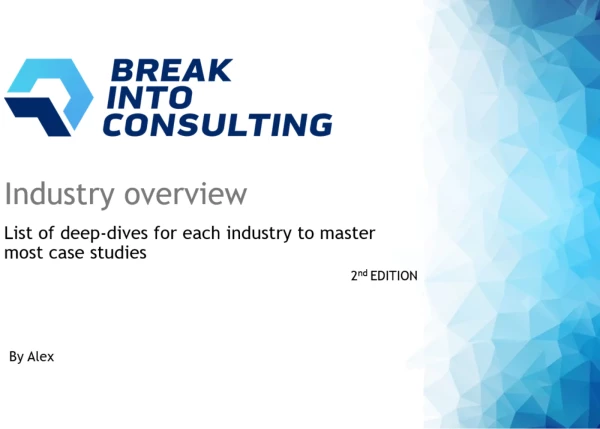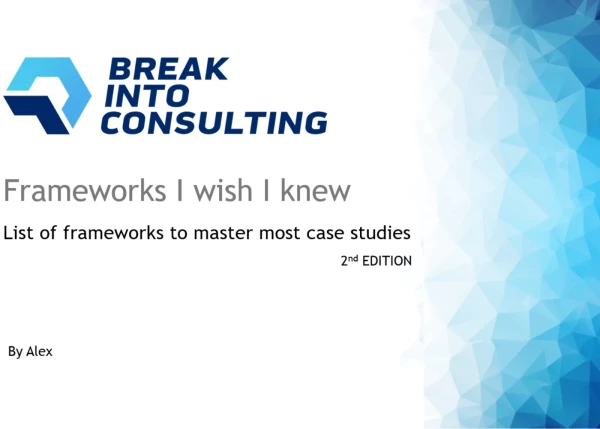Hi All,
What would be the top 5 tips you ever got or heard on MBB preparation?
I study a lot and do my best to study smart, but I would love to hear some of the tips of the more experienced people who have been through the process.
btw. this is a great community, already learnt a bunch of stuff in here!! Just want to say big THANK YOU to all the experts helping the aspiring consultants.









